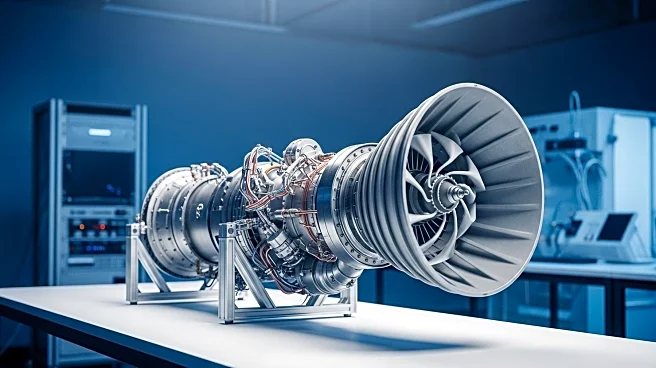What is the story about?
What's Happening?
Venus Aerospace has successfully conducted the first test flight of its high-thrust Rotating Detonation Rocket Engine (RDRE), marking a significant advancement in rocket propulsion technology. The Houston-based startup, founded in 2020, tested the engine in New Mexico, achieving an altitude of 4,400 feet and a speed of 383 miles per hour. The RDRE operates through a series of detonations, using shockwaves for propulsion, and is designed to be 15% more efficient than traditional rocket engines. This breakthrough could pave the way for commercial hypersonic flight, offering faster and more efficient space travel.
Why It's Important?
The development of RDRE technology by Venus Aerospace represents a potential leap forward in rocket engine efficiency, which has remained relatively unchanged for decades. By achieving higher efficiency, the RDRE could reduce fuel consumption, increase payload capacity, and extend flight ranges, benefiting both commercial and defense sectors. The technology also holds promise for hypersonic travel, potentially enabling flights from Tokyo to Los Angeles in just one hour. This innovation could transform the aerospace industry, offering new opportunities for rapid global transportation and space exploration.
What's Next?
Following the successful test flight, Venus Aerospace is receiving interest from various commercial and defense clients for its RDRE technology. The company plans to continue developing and deploying the engine, integrating it into systems for diverse applications. As Venus Aerospace advances its technology, it aims to fulfill the growing demand for efficient and reusable hypersonic engines, potentially revolutionizing high-speed flight and expanding its market presence.
















